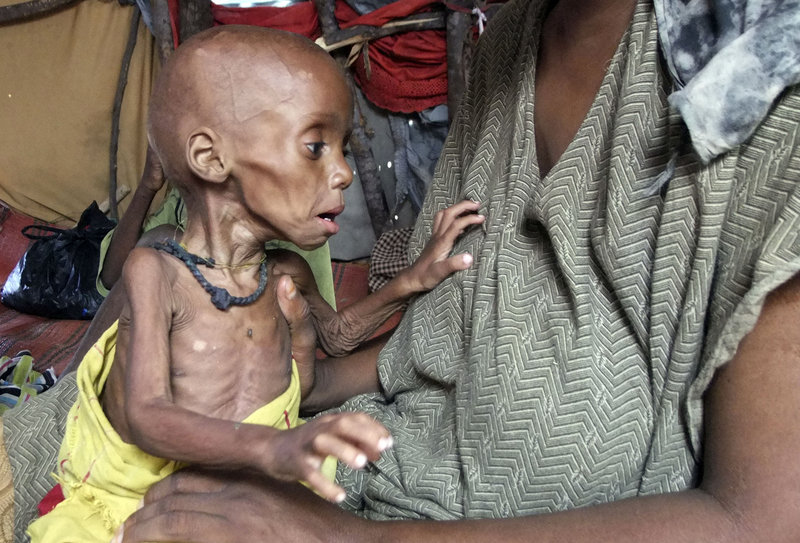NAIROBI, Kenya – Seasonal rains in Somalia threaten to spread disease among the hundreds of thousands of internally displaced residents who have fled famine conditions in hopes of finding food, 20 aid groups said Wednesday.
The groups warned that the aid response to Somalia’s famine has not been large enough to address the dire needs, and that hundreds of thousands of people could die. Tens of thousands of children and many more adults have already died from hunger.
“It is hard to imagine that the suffering in Somalia could get any worse. Yet we know that the arrival of the Deyr rains predicted for October 2011 will result in increased suffering and lead to the deaths of many more weak and vulnerable Somalis in communities already decimated by famine,” the groups said. “The spread of cholera, measles and malaria will have a devastating effect on malnourished men, women and children.”
The United Nations says that more than 4 million people are suffering from a food crisis in Somalia, and that 750,000 of those people are at risk of death in the next four months.
A Somalia expert at Davidson College in North Carolina said in a new paper released Wednesday that President Obama needs to lead an international effort to open food aid corridors in Somalia. Ken Menkhaus said the Responsibility to Protect doctrine should be invoked in order to save the millions of lives at risk.
“Unless the international response changes, the 2011 Somali famine will be to the Obama administration what the 1994 Rwandan genocide was to the Clinton administration — a terrible stain, an unforgivable instance of lack of political will to push policy beyond incrementalism,” Menkhaus wrote. “We can and must do better.”
A majority of Somalia’s famine victims live in areas controlled by al-Shabab, a harsh militant group that won’t allow most international aid groups into the territories it controls. Menkhaus said the U.S. and Islamic countries need to pressure the Somalia government and al-Shabab to allow access for food aid.
Among the groups signing the letter was Oxfam, the Danish Refugee Council and World Vision.
Send questions/comments to the editors.



Success. Please wait for the page to reload. If the page does not reload within 5 seconds, please refresh the page.
Enter your email and password to access comments.
Hi, to comment on stories you must . This profile is in addition to your subscription and website login.
Already have a commenting profile? .
Invalid username/password.
Please check your email to confirm and complete your registration.
Only subscribers are eligible to post comments. Please subscribe or login first for digital access. Here’s why.
Use the form below to reset your password. When you've submitted your account email, we will send an email with a reset code.